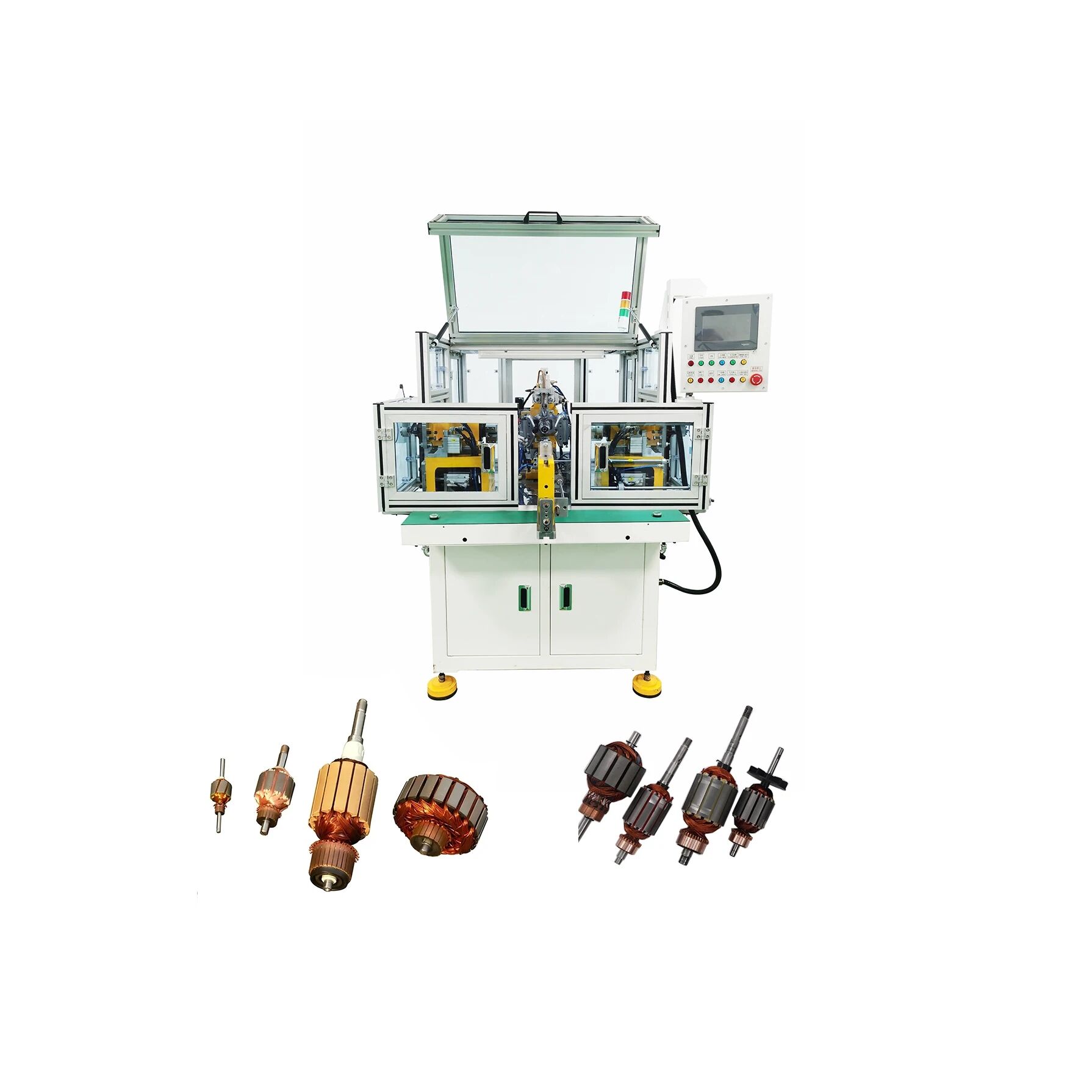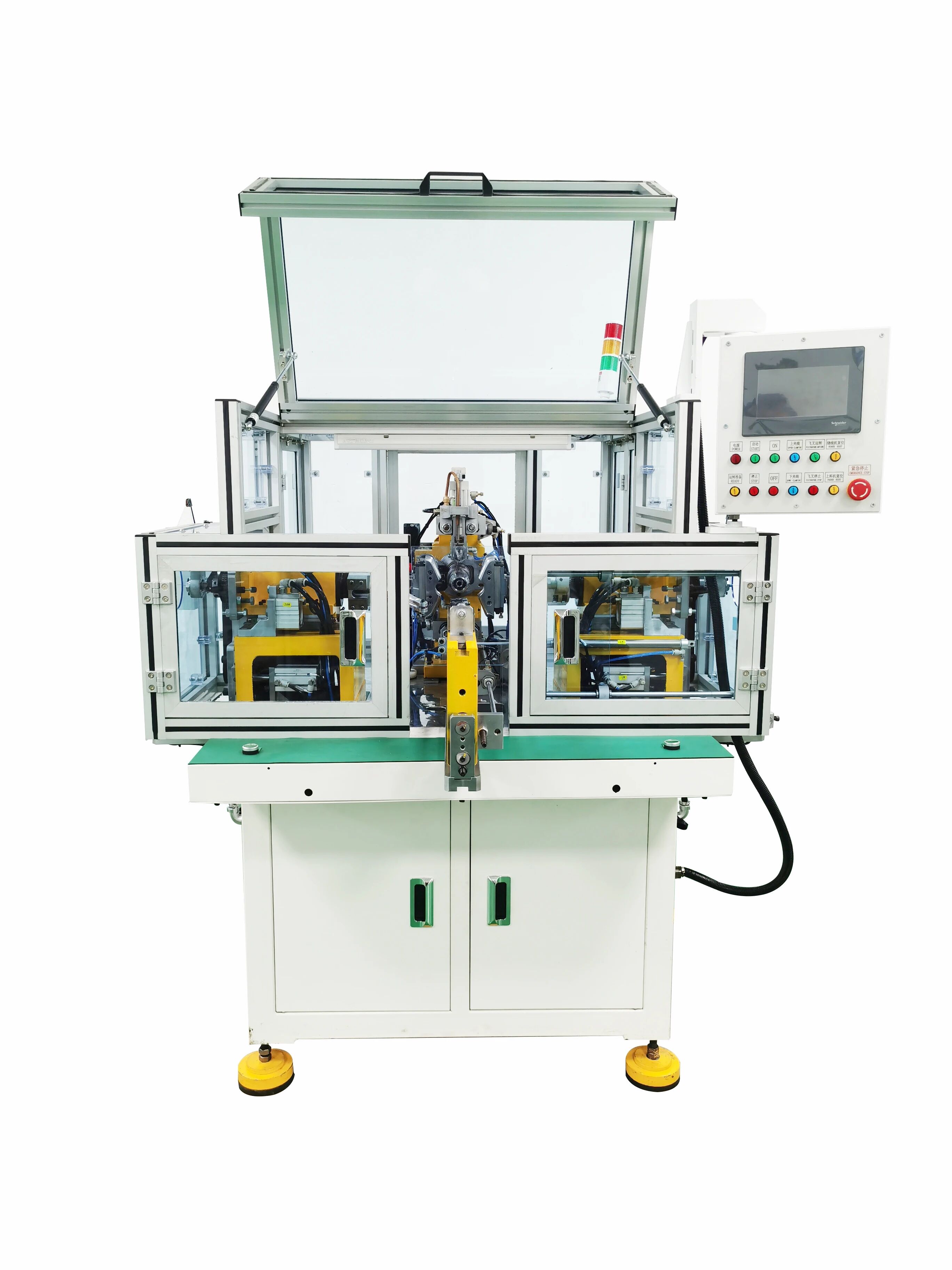Strategies for Preventing Insulation Damage in Compressor Motor Winding Machines and Production Lines
Compressor motors are vital components in many industries, powering everything from refrigerators to industrial compressors. These motors rely on high-quality windings for efficiency and longevity. However, insulation damage in motor windings can lead to motor failures, increased downtime, and costly repairs. Preventing insulation damage in compressor motor winding machines and production lines is crucial to maintaining optimal motor performance. This blog will outline strategies for protecting motor windings from insulation damage throughout the manufacturing process.
The Importance of Insulation in Compressor Motor Windings
The insulation in motor windings serves a crucial role in maintaining the integrity of the electrical components. Insulation ensures that the motor operates efficiently, preventing short circuits, electrical leaks, and overheating. As compressor motors often operate under demanding conditions, the insulation is exposed to higher temperatures, vibrations, and stresses. Protecting insulation during the winding and production stages is essential for ensuring the longevity and reliability of the motor.
Role of Insulation in Motor Performance
Insulation is not only responsible for electrical safety but also for optimizing the motor's thermal management. Insulation that deteriorates too quickly can lead to overheating, which may cause the motor to burn out. High-quality winding machines are designed to provide the precise handling of insulation material, ensuring that it maintains its integrity throughout the production process. Insulation protects against electrical faults and helps the motor maintain consistent performance, even under high operating conditions.
The Impact of Insulation Damage
When insulation is damaged during the winding process, it can lead to several problems, including decreased motor efficiency, higher maintenance costs, and increased downtime. Even minor insulation damage can result in motor failure, especially in compressor motors that work in environments with fluctuating temperatures and high mechanical stress. Preventing insulation damage is, therefore, a critical step in ensuring that the motor performs optimally and remains durable.

Understanding the Common Causes of Insulation Damage in Winding Machines
Machine Misalignment and Poor Tension Control
Winding machines that are not properly aligned or calibrated can cause uneven tension on the wire, leading to stress on the insulation. When the tension is too high, the insulation material can tear, crack, or become deformed. In some cases, this damage may be invisible during the winding process but can cause short circuits or other electrical issues once the motor is in use. Ensuring that winding machines are calibrated for optimal tension is one of the best ways to prevent insulation damage.
Inadequate Temperature Control
The temperature at which the winding machine operates also affects the quality of the insulation. If the machine's temperature is too high, the insulation material may become soft or brittle, leading to damage during winding. Conversely, operating at too low a temperature can result in poor adhesion of the insulation material to the wire, leading to weak spots in the insulation. Proper temperature control during the winding process is essential for maintaining insulation integrity.
Implementing Proper Winding Machine Calibration and Setup
Regular Calibration Checks
Winding machines should undergo regular calibration checks to ensure that they are operating within the correct parameters. This includes checking the tension, speed, and wire placement to ensure that the insulation is being handled properly. Calibration checks should be done on a scheduled basis to account for any wear and tear that may have occurred over time.
Optimizing Tension Control Mechanisms
Tension control is a crucial aspect of winding machine setup. Too much tension on the wire can cause it to stretch and damage the insulation, while too little tension can result in loose or misaligned windings. Modern winding machines often feature advanced tension control systems that automatically adjust to ensure the wire is wound tightly but without causing stress on the insulation material. Investing in high-quality tension control systems can prevent many common issues related to insulation damage.
Improving Production Line Practices for Insulation Protection
Controlling Environmental Factors
Environmental factors such as humidity, dust, and temperature fluctuations can negatively affect insulation materials. If the production environment is not controlled, the insulation may become damp or contaminated, weakening its protective properties. It’s essential to maintain a clean, dry, and stable environment in the production facility. This includes installing dehumidifiers, air filtration systems, and temperature controls to maintain optimal conditions for winding and assembly.
Worker Training and Handling Procedures
Even with the best winding machines, human error can still result in insulation damage. Workers must be properly trained on the importance of handling the wire and insulation with care during the winding process. Simple actions, such as wearing gloves to prevent oils from contaminating the insulation or handling wires gently to avoid stressing the insulation, can make a significant difference. Training workers to follow best practices ensures that insulation remains in optimal condition throughout the production process.
Selecting High-Quality Insulation Materials for Better Durability
Choosing the Right Insulation for Compressor Motors
Not all insulation materials are created equal, and some are better suited for compressor motors than others. High-temperature-resistant materials, such as mica, polyester, or fiberglass, can better withstand the extreme conditions that compressor motors often operate in. Investing in high-quality insulation materials ensures that the motor will continue to function reliably, even in challenging environments.
Testing Insulation Durability
Before selecting insulation for your motor production line, it’s important to test the material for durability and resistance to heat, moisture, and mechanical stress. This can involve performing tests like dielectric strength testing, abrasion resistance testing, and thermal cycling. Using insulation materials that pass these tests will result in longer-lasting and more reliable motors.
FAQ
How can I prevent insulation damage during the winding process?
Ensuring that the winding machine is properly calibrated, maintaining optimal tension control, and controlling the temperature during winding are key factors in preventing insulation damage. Additionally, a clean and stable production environment and proper handling by workers are essential to protecting the insulation material.
Why is regular calibration of winding machines important?
Regular calibration ensures that the winding machine is functioning within the correct parameters, such as tension and speed, to prevent excessive stress on the insulation. Calibration also helps account for any wear and tear that may affect the machine's performance, reducing the likelihood of insulation damage.
How does environmental control help prevent insulation damage?
Environmental factors like humidity, dust, and temperature fluctuations can weaken insulation materials, making them more prone to damage. Maintaining a clean, dry, and temperature-controlled environment in the production facility helps preserve the insulation’s integrity and ensures that it remains durable throughout the manufacturing process.
What types of insulation materials are best for compressor motor windings?
High-temperature-resistant insulation materials, such as mica, polyester, and fiberglass, are ideal for compressor motor windings. These materials are better suited to handle the demanding conditions of compressor motors, ensuring that the insulation remains intact even in high-heat environments.

